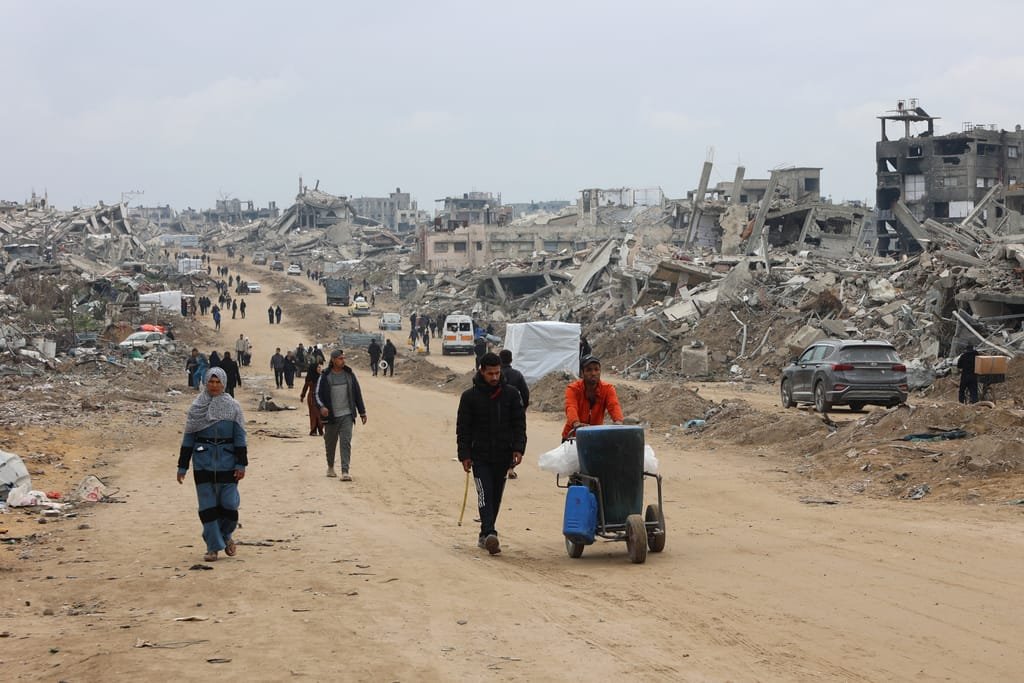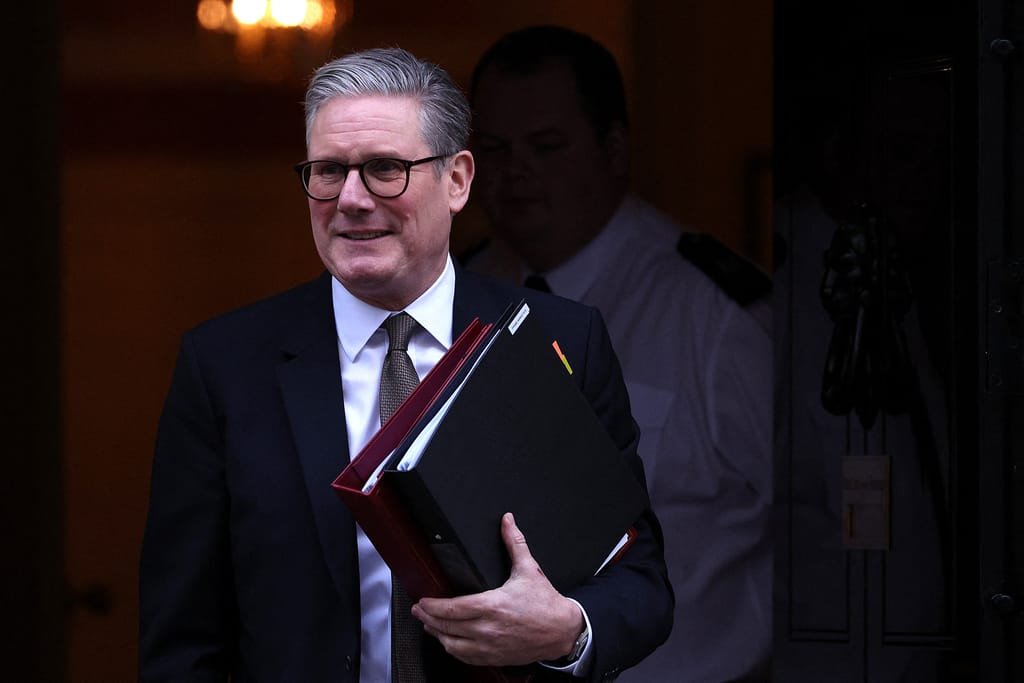U.S. president faces outrage from Arab countries and key European capitals over his “dangerous” proposal that Palestinians should be removed from the coastal enclave.

AMMAN, Jordan — European countries joined Arab nations Wednesday in rebuking a shock announcement by United States President Donald Trump that he wants to take control over Gaza and forcibly displace its inhabitants to neighboring countries including Jordan and Egypt.
Trump’s remarks that the U.S. should “own” Gaza and turn it from a “demolition site” into the “Riviera of the Middle East,” sparked immediate blowback from Palestinian officials, their regional allies around the Middle East and key European capitals.
Annalena Baerbock, Germany’s foreign minister, said that the proposal to move the Palestinians out was “unacceptable” and against international law; in France, a government spokesperson said Paris is “fully opposed to the displacement of populations” and called Trump’s proposal “dangerous” for regional stability.
“We will not allow the rights of our people, for which we have struggled for decades and made great sacrifices to achieve, to be infringed upon,” said Palestinian President Mahmoud Abbas, in a statement.
The aftermath of Israel’s destructive war on Gaza has long looked like an intractable problem that neither Israeli Prime Minister Benjamin Netanyahu or the U.S. seem to have a concrete, workable plan for. Militant group Hamas, which currently governs the Gaza Strip, and Israel are in talks mediated by Qatar and Egypt (and backed by the U.S.), which aim to reach a solution for the future reconstruction and governance of the territory.
Egypt’s Foreign Minister Badr Abdelatty reiterated his country’s support for the “legitimate and inalienable rights of the Palestinian people” and spoke about the need for early recovery and reconstruction plans in Gaza with the Palestinian Authority, after a meeting with Palestinian Prime Minister Mohamed Mostafa.

Jordanian officials had not responded publicly or replied to POLITICO’s request for commenton the Trump plan at the time of publication.
In an overnight statement, the Saudi Arabian foreign ministry said it had warned “former and current U.S. administrations” about the Palestinian people’s rights — and reiterated it would not establish diplomatic relations with Israel if certain conditions were breached.
Fears of further unrest
Trump has repeated at least four times in the last few days that Palestinians in Gaza should be displaced to neighboring countries, first floating the idea on Jan. 25 following a call with Jordan’s King Abdullah II and prompting widespread condemnation that the move would amount to ethnic cleansing and violate international law.
Hamas and Israel are starting talks to find an agreement on extending a fragile cease-fire in Gaza as part of a three-phase peacedeal, following 15 months of the Israeli military bombarding the coastal enclave in retaliation for the Hamas attacks on Oct. 7, 2023.
The future governance and reconstruction of the battered strip are still unclear, but Trump’s plan represents his most explicit position so far on his vision for Gaza. The U.S. president also indicated Tuesday he would likely lay out in the coming month his position on the West Bank, a territory captured from Jordan and occupied by Israel since 1967.
Arab countries have for years staunchly rejected further expulsion of Palestinians, but that stance has grown stronger since Trump re-assumed control of the White House on Jan. 20.
Foreign ministers from Arab nations including Egypt, Jordan, Qatar and the United Arab Emirates rejected the transfer of Palestinians from their land under any circumstances during a meeting in Cairo on Feb. 1. For Arab countries, Palestinian officials and much of the international community, a renewed forced exile would also further weaken the future of a potential two-state solution for Israelis and Palestinians.
Jordan’s king Abdullah II and Egypt’s President Abdel Fattah el-Sisi spoke over the phone Tuesday evening “to maintain close coordination on various regional developments, foremost of which is the Palestinian cause,” according to a readout from the Jordanian royal palace.
The creation of a Jewish state in 1948, led by David Ben-Gurion, chairman of the Jewish Agency, after decades of violent pogroms and the Holocaust in Europe, is known to Palestinians as the Nakba or the “catastrophe,” which led to waves of displacement of hundreds of thousands of Palestinians to neighboring countries like Jordan, Syria and Lebanon.
That prompted long-term instability in the region, a situation that Amman and Cairo fear could happen again.
‘New suffering and new hatred’
Jordan, in particular, sees any displacement of Palestinians to its land as an existential threat and a red line for its peace treaty with Israel.
Officials worry that the country — with a population of 11 million people, including more than half who are Palestinian or of Palestinian descent — could become a de facto Palestinian state, prompting unrest and destabilizing its society and economy.
King Abdullah II in Brussels on Jan. 29 insisted on Jordan’s “firm position” to ensure “Palestinians stay on their land,” according to a press release from the royal palace.
He is now expected to fly to Washington D.C. to meet with Trump on Feb. 11 as tensions ratchet up.
Jordan — a historical ally of the U.S. and one of its largest aid recipients with a yearly $1.4 billion aid package — has seemingly not been exempted from Trump’s 90-day aid freeze announced in January, a move analysts have suggested might be connected to Trump’s displacement plan and described aseconomic blackmail.
The concerns about Trump’s Gaza ambitions are not limited to the Middle East, however.
“The civilian population of Gaza must not be displaced and Gaza must not be permanently occupied or resettled,” Germany’s Baerbock said Wednesday. “The expulsion of the Palestinian civilian population from Gaza would not only be unacceptable and contrary to international law” but it would also cause “new suffering and new hatred.”
“We are sticking to our policy: no displacement of populations, the search for a temporary cease-fire toward a peace process and a two-state solution,” the French government spokesperson added.
Clothilde Goujard reported from Amman, Jordan. Laura Hülsemann reported from Berlin. Clea Caulcutt reported from Paris. Elena Giordano reported from Brussels.




